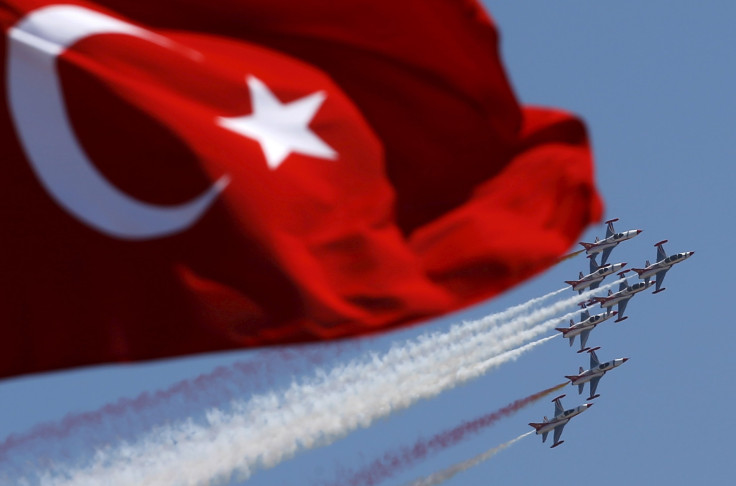US Weapons To Turkey? State Department Approves $70M Smart-Bomb Sale As Turkish Military Steps Up Anti-ISIS, Kurdish Campaign

The U.S. State Department has agreed to sell precision bomb kits worth some $70 million to Turkey, Reuters reported Friday. The news comes as Turkey, an important NATO ally, has stepped up its fight against the Islamic State group in Syria, also known as ISIS. At the same time, the U.S. has expressed concern over Turkey’s recent conflict with Kurdish groups.
"It is vital to the U.S. national interest to assist our NATO ally in developing and maintaining a strong and ready self-defense capability," the Defense Security Cooperation Agency, which deals with foreign arms sales, said in a statement on its website Thursday.
US approves the sale of precision bomb kits valued at $70 million to Turkey https://t.co/n7kIOsKjeH pic.twitter.com/apCouxqUyg
— Business Insider (@businessinsider) October 29, 2015
Lawmakers will have 15 days to vote against the sale to Turkey, and if it goes through, Turkey and the U.S. government can begin negotiation over the munitions. The sale would include some 900 smart bombs, 100 laser kits, 200 warheads and 1,000 capsules, according to Hurriyet Daily News. Some U.S. politicians have in the past been critical of the sale of the technology to Turkey. The main contractor of the deal would be Rayhteon Co.
Turkey has recently stepped up a campaign against ISIS militants, following a twin suicide bombs that killed around 100 people in the country’s capital Ankara, three months after an ISIS suicide bomber killed more than 30 people in the southern Turkish town of Suruc. The country has also been engaged in a conflict with Kurdish militants in southeastern Turkey and Iraq.
Turkish President Recep Tayyip Erdogan recently announced Turkey would “do what is necessary” to prevent Syrian Kurdish militants, supported by the U.S., from declaring autonomy near the Turkish border in Syria. American officials have been critical of Erdogan’s bombing of Kurdish separatists.
© Copyright IBTimes 2024. All rights reserved.





















